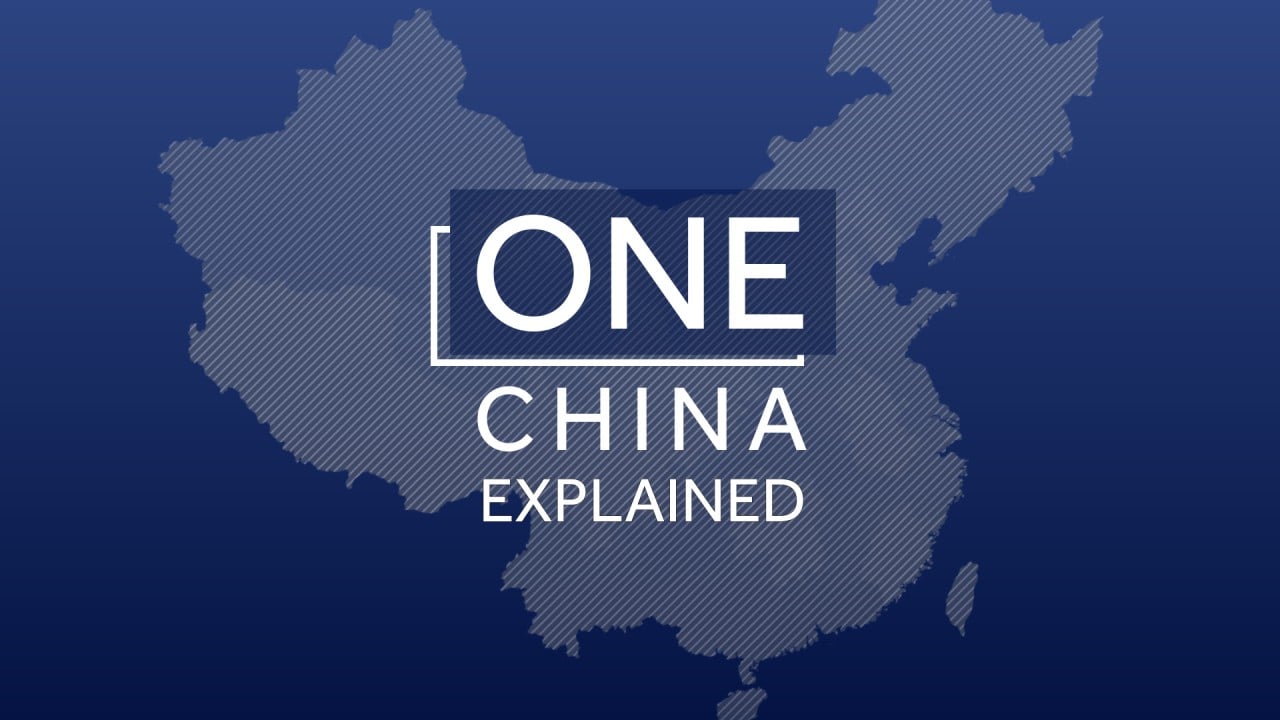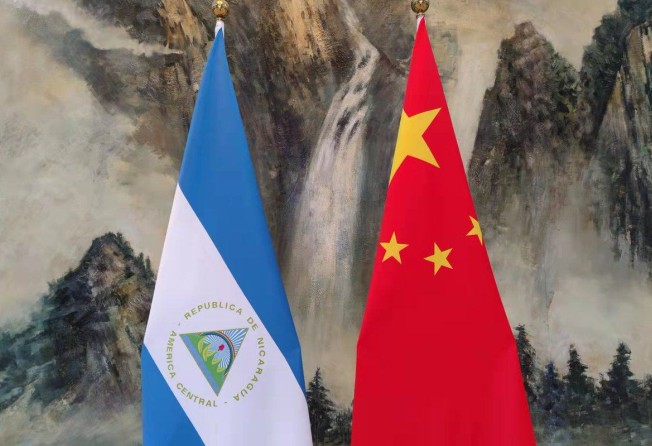
02:17
‘One China’ explained

China’s senior diplomat hit back at the United States on Friday over pressure on Central American nations not to switch recognition from Taipei to Beijing, saying more countries would make the change.
Foreign Minister Wang Yi took aim at Washington after Beijing established formal ties with Managua.
In a meeting with his Nicaraguan counterpart Denis Moncada in Tianjin, Wang said few countries remained allies of Taiwan because of the island’s “money diplomacy” and pressure from the US.
Wang said Nicaragua’s decision to switch sides put it on “the right side of history” and mainland China must eventually reunite with Taiwan, the self-ruled island that Beijing considers as a breakaway province.
He also accused the US of having “outside standards” on the issue.
“The US itself established diplomatic relations with China some 40 years ago. What right do they have to prevent other sovereign countries from making their own choices?”
A delegation from the Central American nation – headed by Nicaraguan President Daniel Ortega’s son Laureano Ortega Murillo, presidential adviser for investments, trade and international cooperation – arrived in Tianjin on Friday for talks with Chinese foreign vice-minister Ma Zhaoxu.
A senior Chinese official involved in preparations for the visit said it was intended as a response to the US’ democracy summit.
“It’s a gift for the so-called summit for democracy, and a slap in the face for the US and Taiwan,” said the official, according to a person familiar with the conversation.
According to the Chinese foreign ministry, Laureano Ortega Murillo said Nicaragua was willing to take part in China’s Belt and Road Initiative and improve cooperation in all areas.
During their three-day trip to China, the delegation is also likely to hold talks with Chinese economic officials, according to the source.
The establishment of diplomatic ties between Beijing and Managua follows months of worsening relations between the Ortega government and Washington.
On Friday, the State Department slapped sanctions on Nestor Moncada Lau, a national security adviser to Ortega, over his alleged operation of an import and customs fraud scheme to enrich members of Ortega’s government.
Last month, US President Joe Biden attacked Ortega, calling Nicaragua’s presidential election a “pantomime”, with the former Marxist guerrilla and Cold War adversary of the US winning a fourth consecutive term.
US State Department spokesman Ned Price said Nicaragua’s decision to break diplomatic ties with Taiwan did not reflect the will of the Nicaraguan people because its government was not freely elected.
“We do know, however, that this deprives Nicaragua’s people of a steadfast partner in its democratic and economic growth,” Price said.
“We encourage all countries that value democratic institutions, transparency, the rule of law, and promoting economic prosperity for their citizens to expand engagement with Taiwan.”
The Nicaraguan foreign ministry said it recognised there was only a single China.
“The People’s Republic of China is the only legitimate government that represents all of China and Taiwan is an inalienable part of the Chinese territory,” it said.
“The government of the Republic of Nicaragua today breaks diplomatic relations with Taiwan and ceases to have any contact or official relationship.”
This is the second time Nicaragua has severed diplomatic ties with the island. In 1985 it cut its 55-year recognition of Taipei, before switching back in 1990, under former president Violeta Barrios Torres de Chamorro.
Beijing has been stepping up pressure on Taiwan since Tsai Ing-wen, from the pro-independence Democratic Progressive Party, became the island’s president in 2016. It has won over eight of Taiwan’s diplomatic allies, four of them in Latin America.
Tsai said Nicaragua’s switch involved complex international and cross-strait conditions.
“The more successful Taiwan’s democracy is and the stronger the support Taiwan has from the international community, the stronger pressure we will face from the authoritarian regime,” she said, referring to Beijing’s efforts to isolate the island on the international stage.
She stressed that regardless of diplomatic pressure or military threats from Beijing, it would not change “our determination and efforts to uphold democracy and freedom as well as our international participation”.
All Taiwanese embassy officials and engineers stationed in Nicaragua would be recalled, Taiwan’s foreign ministry said.
“To uphold our sovereignty and dignity, we have decided to terminate our diplomatic relations with Nicaragua effective immediately and end all bilateral cooperation and aid projects,” it said.
The ministry said Taipei had long been a loyal and reliable friend of Managua and had offered long-term help for overall development of the Latin American state. It also criticised the Ortega government for switching ties to Beijing.
The ministry stressed that, as a member of international society, Taiwan had the right to promote foreign ties with other countries and would continue to seek to increase its global presence.
Li Da-jung, professor of international relations and strategic studies at Tamkang University in Taipei, said Beijing had also won over the Dominican Republic, El Salvador and Panama in the last few years.
“This definitely will help increase its influence in this part of America which is considered the US’ backyard. But this does not necessarily mean the US has lost in its competition for influence in this region,” Li said, adding that many countries in the region relied on the US economically and financially.
Additional reporting by Reuters